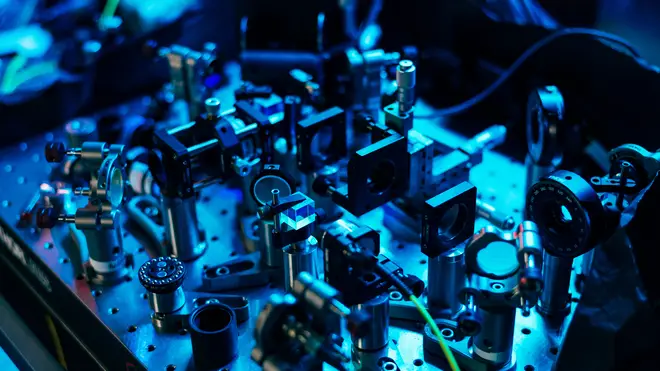
Shelagh Fogarty 1pm - 4pm
3 September 2020, 14:04

UK scientists say the system is more secure than the internet at present and can be rolled out cheaply.
The world is one step closer to having a totally secure internet and an answer to the growing threat of cyber-attacks, according to scientists.
A prototype, designed by a team at the University of Bristol, could transform the security of online communication for millions of people across the globe.
By harnessing the laws of physics, it can make messages completely safe from interception while also overcoming major challenges which have previously limited advances in little used but much-hyped quantum technology.
Lead author Siddarth Joshi said: “This represents a massive breakthrough and makes the quantum internet a much more realistic proposition.
“Until now, building a quantum network has entailed huge cost, time and resource, as well as often compromising on its security, which defeats the whole purpose.
“Our solution is scalable, relatively cheap and, most important of all, impregnable. That means it’s an exciting game-changer and paves the way for much more rapid development and widespread rollout of this technology.”
The internet relies on complex codes to protect information, but hackers are increasingly adept at outsmarting such systems, leading to cyber-attacks across the world which cause major privacy breaches and fraud running into trillions of pounds annually.
With such costs projected to rise dramatically, the case for finding an alternative is compelling, and quantum has for decades been hailed as the revolutionary replacement to standard encryption techniques.
Physicists have so far developed a form of secure encryption, known as quantum key distribution, in which particles of light called photons are transmitted.
The process allows two parties to share, without risk of interception, a secret key used to encrypt and decrypt information, but to date the technique has only been effective between two users.
“Until now, efforts to expand the network have involved vast infrastructure and a system which requires the creation of another transmitter and receiver for every additional user,” Dr Joshi said.
“Sharing messages in this way, known as trusted nodes, is just not good enough because it uses so much extra hardware which could leak and would no longer be totally secure.”
The team’s quantum technique applies a seemingly magical principle, called entanglement, which Albert Einstein described as “spooky action at a distance”.
It exploits the power of two particles in separate locations, potentially thousands of miles apart, to simultaneously mimic each other.
This presents far greater opportunities for quantum computers, sensors and information processing.
The team created a network for eight users using eight receiver boxes, whereas the old method would need the number of users multiplied many times – in this case, amounting to 56 boxes.
As user numbers grow, the logistics become increasingly unviable under the old system – for instance, 100 users would need 9,900 receiver boxes.
Where previous quantum systems have taken years to build, at a cost of millions or even billions of pounds, the new network was created within months for less than £300,000.
– The paper, A trusted node-free eight-user metropolitan quantum communication network, is published in the journal Science Advances.